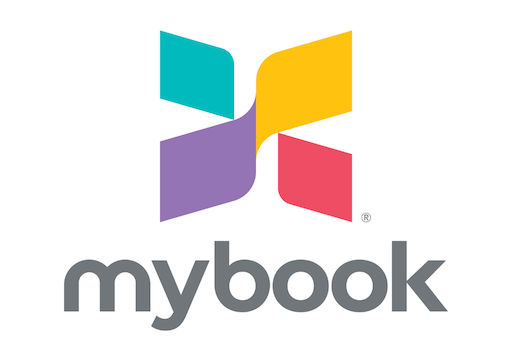Switch Marketing Agency as Client: Effortless and Essential Guide
Switching your marketing agency as a client can seem daunting. Whether you’re unhappy with the current agency’s performance, seeking a fresh perspective, or looking for specialized services, knowing how to navigate this transition seamlessly can save you time, money, and a lot of unnecessary headaches. But don’t worry; this guide will help you understand why and how to make the switch smoothly, ensuring that the process is both effortless and rewarding.
Why Switch Marketing Agency?
Before diving into the “how,” it’s important to explore the “why.” So, why would someone consider switching? Many businesses find themselves at a crossroads with their marketing agency for various reasons:
– Inconsistent Results: Maybe your agency promised the world but delivered little in terms of conversions or brand visibility. If your KPIs aren’t being met consistently, it might be time for a change.
– Lack of Communication: Good communication is key in any professional relationship, including with your marketing agency. If you feel out of the loop or ignored, it can impact your overall strategy and outcomes.
– Evolving Needs: As your business grows, so do your needs. If your current agency lacks the expertise or creativity to tackle new challenges, you’ll want to explore options that align better with your current goals.
– Cultural Fit: An agency’s culture should resonate with your company’s values. If you’re not compatible, it can hinder your marketing efforts and diminish the effectiveness of your campaigns.
How to Switch Marketing Agency as Client
Now that you have a sense of why you might want to switch, let’s outline how to do so in a way that minimizes stress and maximizes impact.
Step 1: Assess Your Needs
Before you jump ship, take some time to clarify what you want from a new agency. Is it enhanced digital marketing strategies, better SEO, or perhaps creative content production? Create a list of must-haves and nice-to-haves. This will serve as a useful guide when evaluating potential new agencies.
Step 2: Research Potential Agencies
When you’re ready to explore new options, do your homework. Look for agencies that specialize in the areas you’ve identified as your priorities. Read reviews, ask for recommendations, and don’t be afraid to reach out to other companies in your network. Sometimes word-of-mouth insights can lead you to hidden gems you may not find online.
Step 3: Initial Consultations
Once you have a shortlist, schedule consultations with your potential new agencies. This is your opportunity to gauge their understanding of your industry and your brand’s unique challenges. Ask questions that matter to you, such as their approach to campaigns, communication style, and how they handle performance reporting.
During these meetings, pay attention to how they respond. Are they genuinely interested in your business, or are they just going through the motions to win your account? You should feel a connection and trust from the outset!
Step 4: Draft a Transition Plan
When you’ve chosen your new agency, it’s time to create a transition plan. This is crucial to ensure that everything runs smoothly. Outline steps for disengaging from your current agency, as well as strategies for onboarding with the new one. Consider including timelines and deadlines to keep both parties accountable.
Step 5: Notify Your Current Agency
It’s never easy to end a relationship, but it’s important to do so professionally. Schedule a direct conversation with your existing agency to explain your reasons for switching. Provide constructive feedback if possible—this can help them improve and also provide you with closure.
Step 6: Monitor the Transition
The first few months with a new agency are critical. Regular check-ins can help you evaluate the agency’s performance and ensure their strategies align with your business goals. Remember, this is a partnership; both sides should feel engaged in the process.
Building a Lasting Relationship
As you settle into this new professional relationship, remember that collaboration is key. Establish clear lines of communication, set expectations regarding deliverables and results, and be open to feedback. The more you invest in this partnership, the more likely you’ll achieve your marketing objectives.
Switching marketing agencies doesn’t have to be a whirlwind of chaos. By following these steps, you can make a thoughtful and effective transition, positioning yourself for renewed growth and success.
Frequently Asked Questions
Q1: How do I know if it’s time to switch agencies?
A1: If you’re not seeing the results you want, suffering from poor communication, or feeling that your agency can’t meet your evolving needs, it might be time to consider a switch.
Q2: What should I look for in a new marketing agency?
A2: Watch for agencies that specialize in your required services, show a strong track record, and demonstrate a genuine understanding of your values and goals.
Q3: How can I ensure a smooth transition to a new agency?
A3: Create a structured transition plan, maintain open communication with both your current and new agency, and set clear expectations for deliverables to minimize disruption.
Related Posts
Switch Marketing Agency as Client: Effortless Tips for Success
Switching marketing agency as client doesnt have to feel daunting; with a few simple strategies, you can turn this transition into a seamless opportunity for growth and innovation in your marketing efforts....
Switch Marketing Agency as Client: Effortless Guide to Success
Switching marketing agencies can feel daunting, but it doesn’t have to be! In this effortless guide, we’ll show you how to switch marketing agency as client with confidence, ensuring your new partnership...












